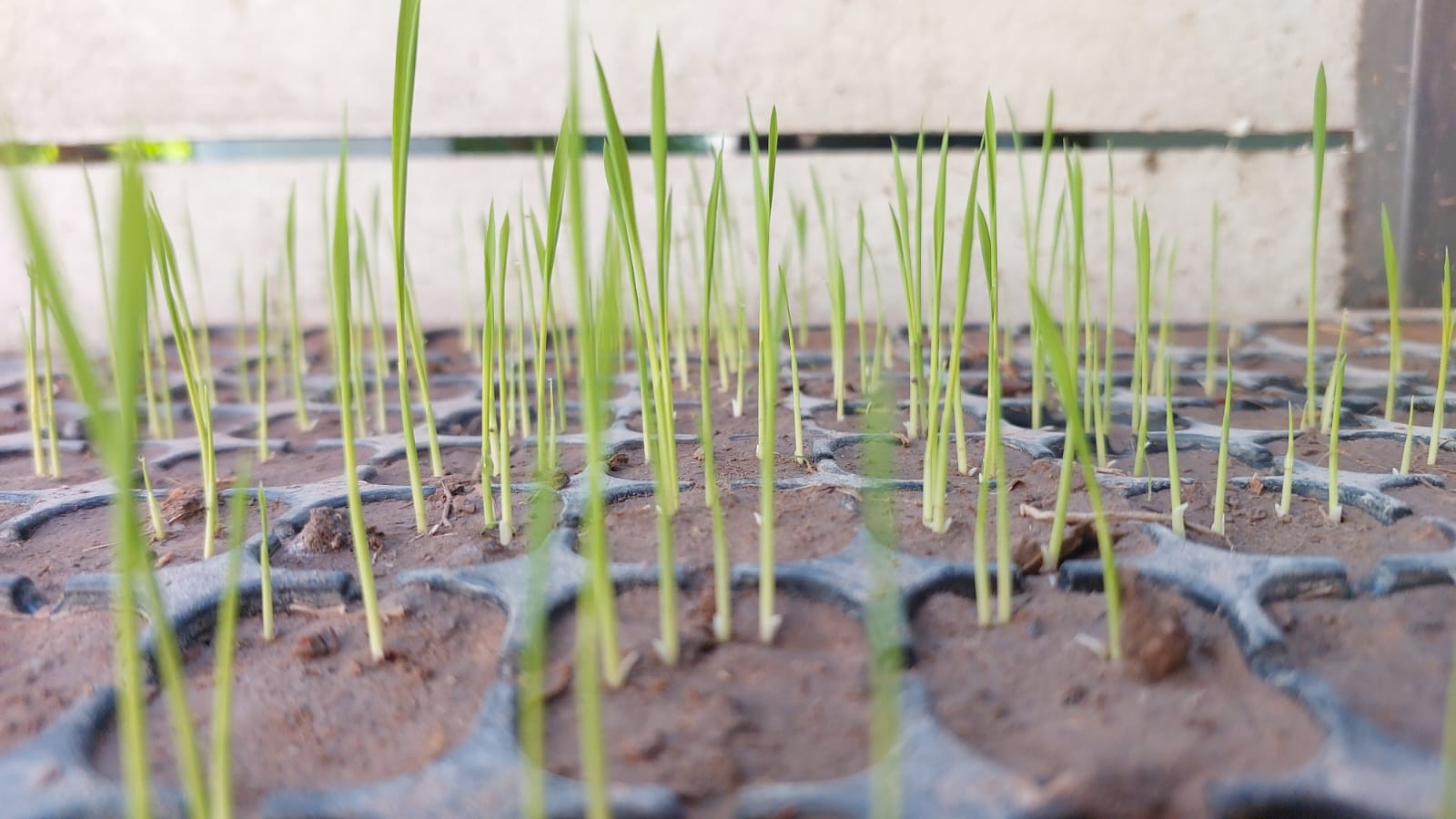July 27, 2022 – The Food Innovation, Nutrition, and Health (FINH) and Food Engineering and Bioprocess Technology (FEBT) academic programs of the Asian Institute of Technology (AIT), together with Aston University, Chulalongkorn University, University of The Thai Chamber of Commerce, Panyapiwat Institute of Management, and The Federation of Thai Industries (FTI), organized a training program on “Adopting Circular Economy in Thailand Food Supply Chain.” The program was held at The Federation of Thai Industries (FTI) building in Bangkok on July 27, 2022. There were 65 participants from food industries, academic institutions, and enterprises.
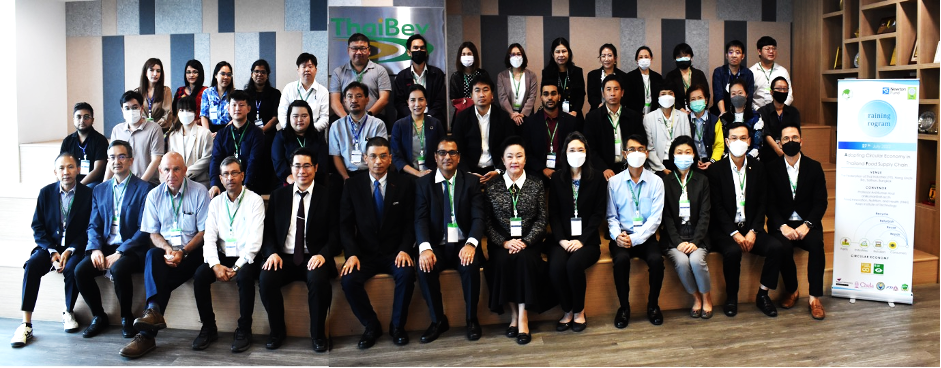
This training program was organized under “Newton Fund Project: Adopting Circular Economy in Food Supply Chain Through Industry-Academia Collaboration.” The Newton Fund finances the project through the National Research Council of Thailand (NRCT). It aims to promote the importance of the bio-circular economy in the food supply chain by coordinating and interacting directly with industries so that they can use circular economy in their field. This research project is a collaboration among five academic institutions, including the Asian Institute of Technology, Aston University, Chulalongkorn University, University of the Thai Chamber of Commerce, and Panyapiwat Institute of Management.
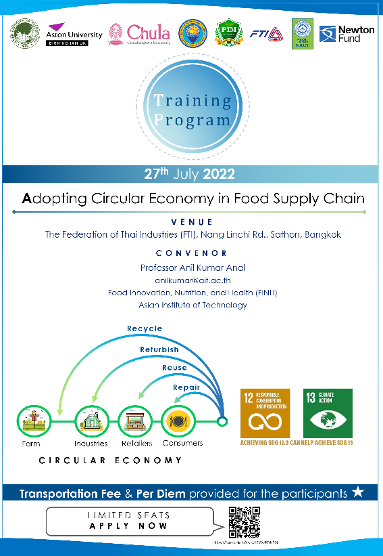
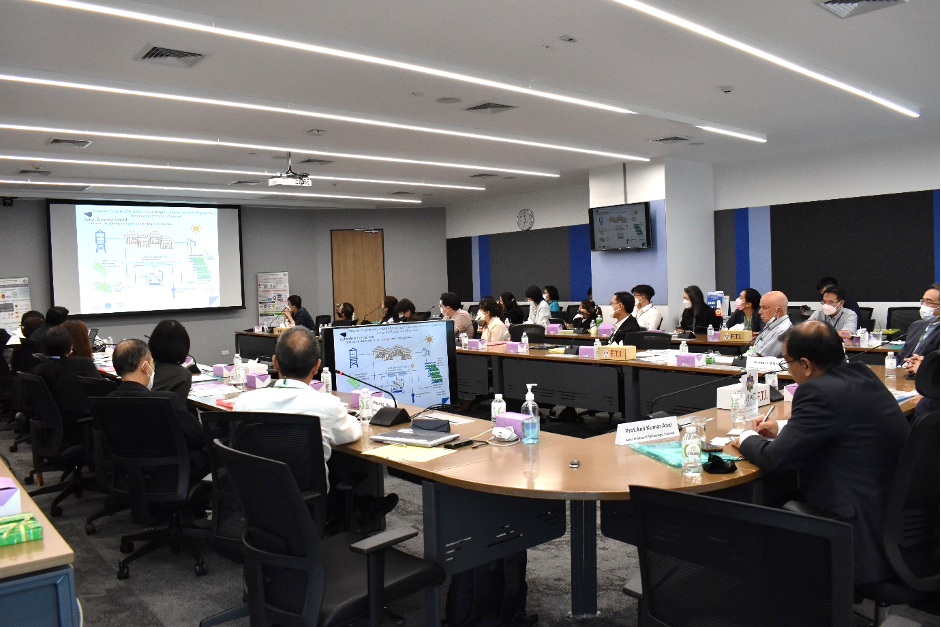
This project aims to understand agri-food producers’ and retailers’ attitudes towards emerging issues in the food supply chain system, specifically referring to circular economy methodology as a means of addressing food waste management.
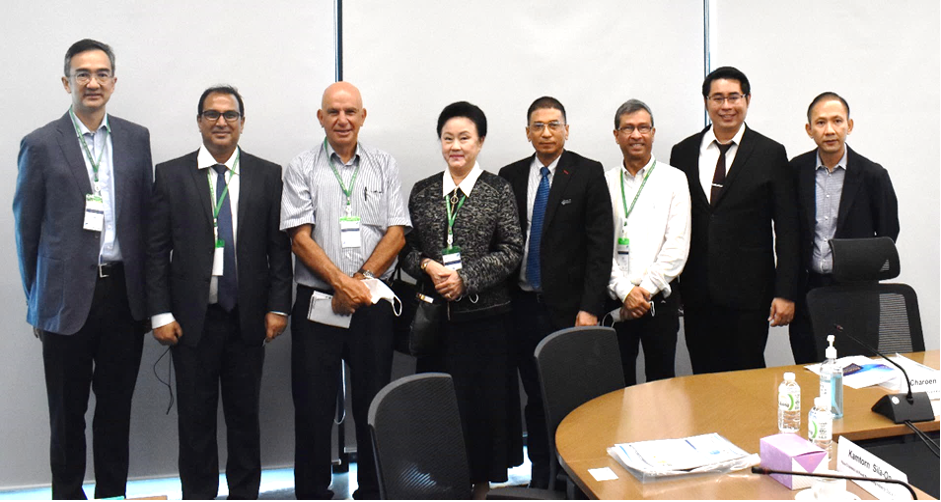
The session started with the welcome remarks and briefing about the objectives of the training program by Prof. Anil Kumar Anal (Professor, Asian Institute of Technology), who thanked all speakers, participants, partner organizations, and donors. Dr. Geoff Parkes (Senior Teaching Fellow, Aston University, UK) and Mr. Charoen Ksowsuksai (the Chairman of Food Processing Industry Club, The Federation of Thai Industries (FTI), and Senior Vice President of CPRAM Co. Ltd., Thailand) also gave their welcome remarks, emphasizing the importance of circular economy in the food and agricultural sectors to achieve the Sustainable Development Goals (SDGs). Dr. Monthip Sriratana (Senior Advisor, The National Research Council of Thailand and Former Deputy Permanent Secretary, Ministry of Natural Resources and Environment, Thailand) delivered Opening Remarks and a Keynote Speech on Thailand’s Bio Circular Green (BCG) Economy Model. She outlined the current BCG Economy status in Thailand, its history, its importance, and the plan to adopt the circular economy in Thai Food Industries.
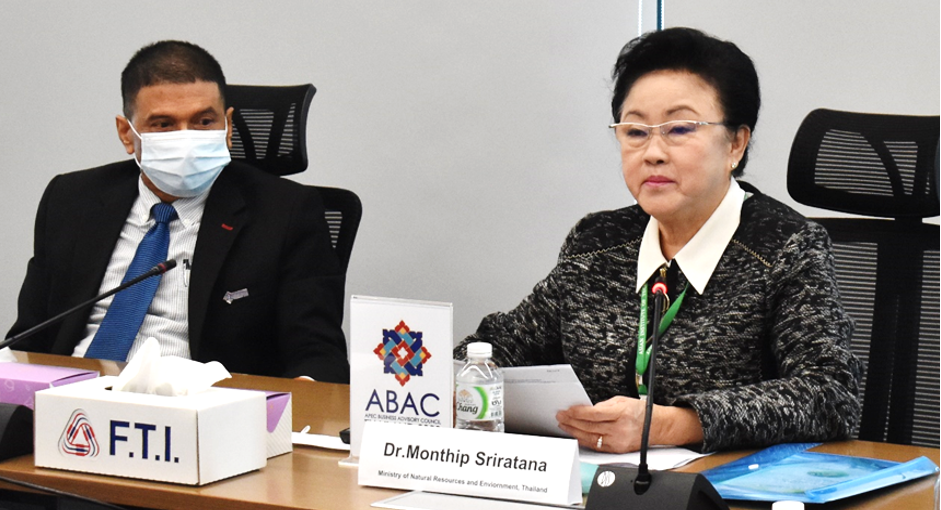
Dr. Prasanta Dey (Professor, Aston University, United Kingdom) presented a brief overview of Circular Economy and Sustainability, including how circular economy leads to addressing Sustainable Development Goals (SDGs) and the importance of circular economy adoption in the food industry. Prof Prasanta also presented some success stories of adopting a circular economy as good practice in the industry.
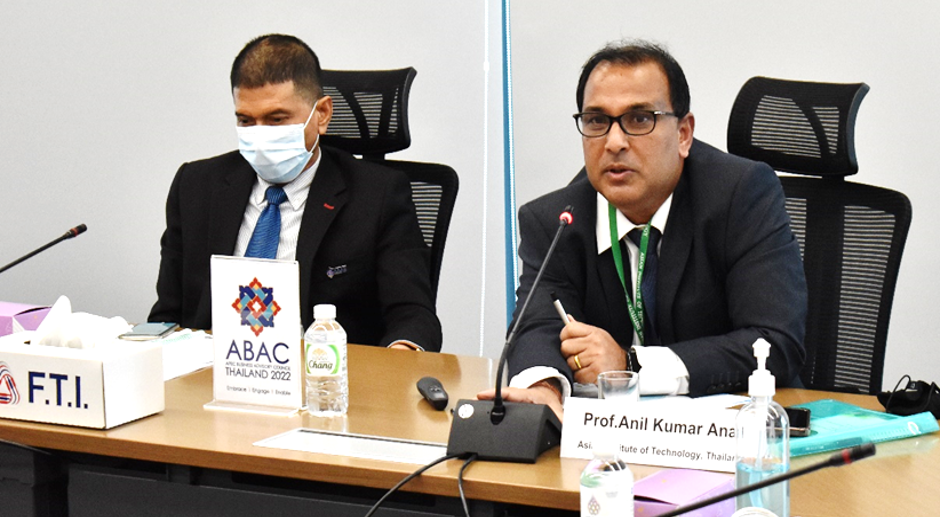
Prof. Anil provided insight and case studies on the topic of “Bio Circular Green Economy in Food and Agriculture: Perspectives and Technological Interventions.” He emphasized the importance of food and agricultural waste to make value-added products, including the ongoing innovative research projects at AIT about the valorization processes to generate wealth from agro-food by-products. He also highlighted collaborating with academic and industrial people to adopt Bio Circular Green Economy for several projects. Prof Anil underscored the critical role of public-private-academia relations and the adoption of Bio Circular Green (BCG) for achieving the Sustainable Development Goals, especially SDG 2 (Zero Hunger), SDG 3 (Good Health and Wellbeing), SDG 9 (Industry, Innovation, and Infrastructure), SDG 12 (Sustainable Consumption and Production) and SDG 13 (Climate Action).
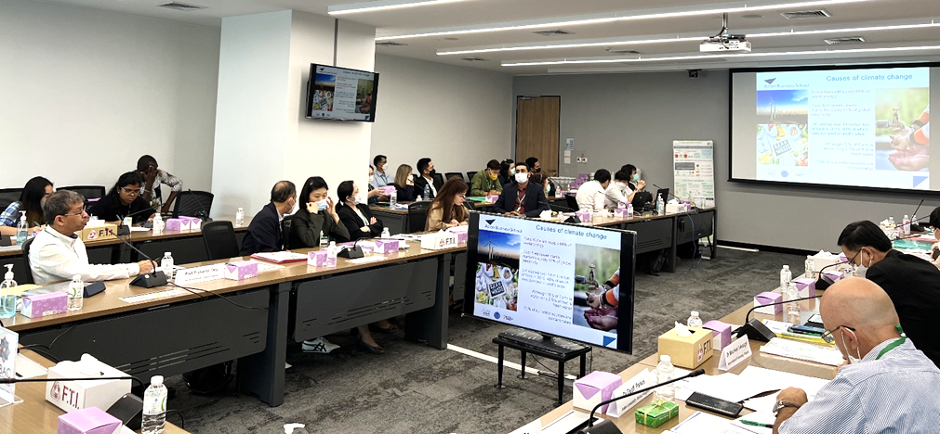
Dr. Geoff Parkes enlightened the importance of “Circular Economy: Knowledge Gaps and Survey Goals.” He further provided some case studies on adopting the circular economy concept in industries based in the UK and Europe.
The participants actively partook in the interactive session on “Perspectives and technical inputs for a circular economy in food industries (Farm-to-Fork).” Expertise addressed participants’ current status, plans, and challenges in adopting a circular economy in their sectors.
AIT’s Ph.D. scholars, Mr. Chaichawin Chavapradit and Mr. Suwan Panjanapongchai, at Food Engineering and Bioprocess Technology (FEBT) program, presented the case study titled “Circular Economy Model and Practices in Seafood and Chicken Industries” which made the training more interactive.
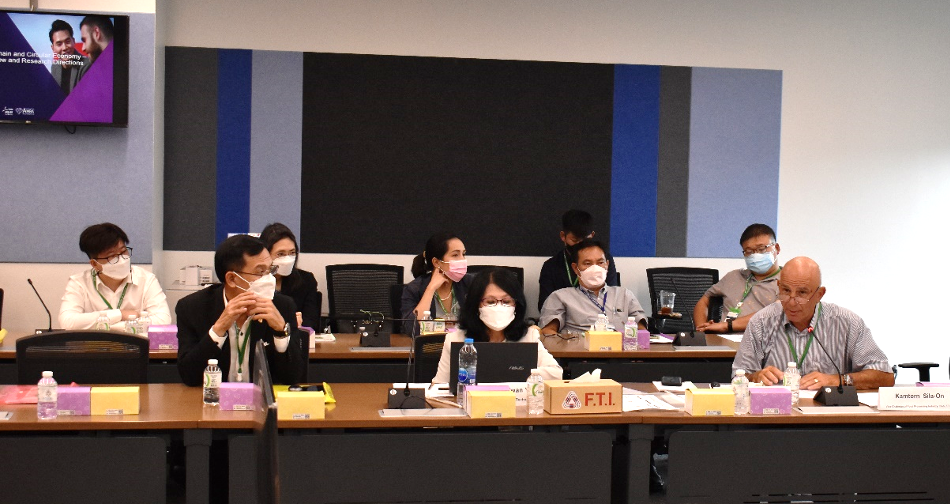
Dr. Vimolwan Yukongdi (Associate Professor, School of Management, Asian Institute of Technology) concluded the training program with closing remarks and a vote of thanks to all participants for sharing vital knowledge, ideas, and perspectives on adopting a circular economy in food industries.
One industry’s waste can be a valuable raw resource for other industries, which can likewise derive significant value from the waste. In conclusion, the outcome of this training program deduced to the following
- Address waste as a side stream of the production process and adopt a circular economy in the food supply chain, which includes reducing the emissions, including carbon and methane footprint as well as generating high-value biomaterials;
- Using alternative sources of energy such as solar energy in possible industrial areas; using biodegradable packaging, and also reusing and recycling containers;
- Eggshell membrane and chicken feathers have the potential to generate a good quality of proteins for food, feed, and cosmetics.
- The waste from cereal, grains, vegetables and fruits processing industries have potential to generate high-value biomaterials including vitamins, minerals, antioxidants, proteins, peptides, fibers etc.
- Black Soldier Fly farming by feeding them food and agricultural wastes as an alternative source of protein in animal feed;
- Wet waste from the seafood/ fish industries could be used as biofertilizer.
- Identify and produce alternative proteins from fast-growing insects and identify and process waste to develop value-added products.

